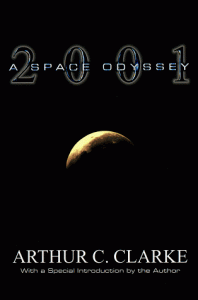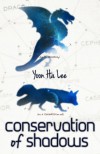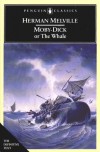Currently reading
2001: A Space Odyssey by Arthur C. Clarke


This book certainly deserves its reputation as a classic science fiction novel. Although a fan of science fiction in general, I frequently don’t actually enjoy many of the “classics.” I used to skip over them when browsing at the library as a kid since I’d read the summary, shrug, and put the book back (I’m not talking specifically about 2001 – my library may not have had it on the shelf). And you know what? Without knowing the social and historical context for the classics, they frequently don’t come off that well.
2001 doesn’t fall into this category, though. My main quibble with it is that it should have ended a chapter earlier. That last page was just…weird. Up until that last page, I was prepared to rate this book 4.5 stars, but that last chapter cost it half a star. It was still an enjoyable read, and I should probably note that I came into this without actually having watched the movie (don’t worry, I plan on correcting that soon), so I didn’t really have many expectations to disappoint.
Mostly I just liked the time spent on the Discovery. Most of what I liked may have just come from my own imagination, but I had a clear sense of these people rattling around in this claustrophobic tin can with an AI that’s acting up, trying to drive away the loneliness with ear-achingly loud music. Seriously, picture a nice, relaxing, incredibly quiet room. There are no outside noises; it’s like you’re in a universe of your own. Now imagine that nice, relaxing quiet continuing, never being broken because there’s nothing around you to make or carry noise for farther than your silly human brain is really equipped to cope with. It gets creepy. I felt that tension while I was on the Discovery and it’s what helped make what could have been a slow read into an absorbing one. I’m not sure the stuff with the apes at the beginning was necessary, though.
Clarke deserves points in my book for referring to the “incandescent star-stuff of the plasma drive.” Let’s just replace hydrogen with star-stuff in every day usage. I sense a new xkcd substitution.
I’m planning on counting 2001 as my “Space opera or other sci fi” square for the summer book bingo. It’s not really space opera, but it’s definitely sci fi!
 2
2














